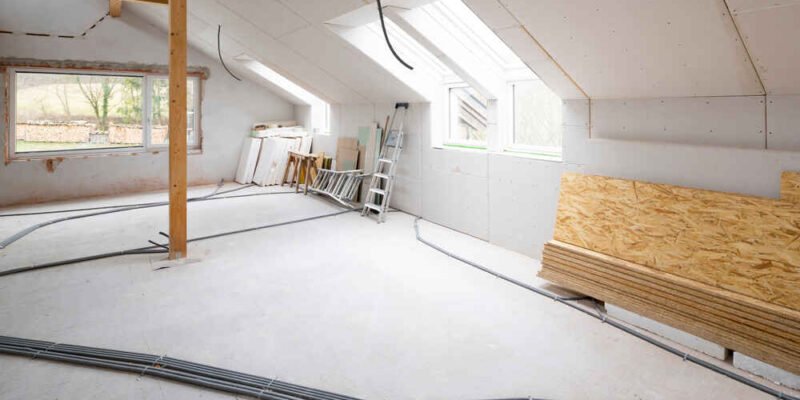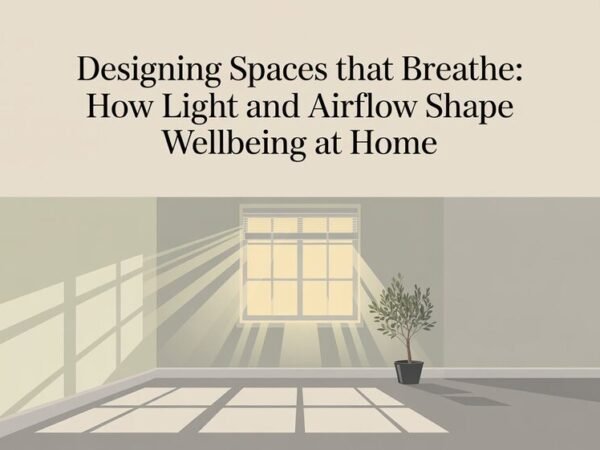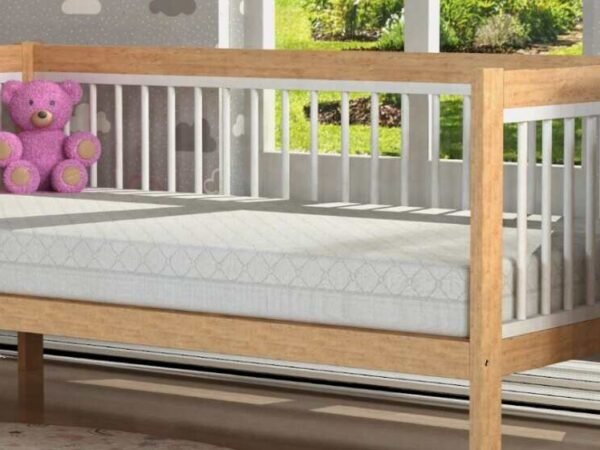In the UK housing market, homeowners constantly seek ways to enhance the value of their properties. One highly effective method is extending the loft space. This strategy maximizes the usable area within a home and adds significant value to the property. This article explores the various aspects of loft extensions, including the benefits, financial implications, and practical considerations, providing a comprehensive understanding of why and how this renovation can be a valuable investment.
The Concept of Loft Extension
A loft extension involves converting the unused attic space into a functional room, such as a bedroom, office, or playroom. This process typically includes reinforcing the floor, adding insulation, installing windows for natural light, and ensuring proper ventilation. The result is an additional living area that can significantly enhance a home’s functionality and aesthetics.
Financial Benefits of Loft Extensions
Increased Property Value
One of the most compelling reasons to undertake a loft extension is the substantial increase in property value. According to housing experts, a well-executed loft conversion can add up to 20% to the value of a home. This increase is due to the added living space, which is highly attractive to potential buyers, especially in urban areas where space is at a premium.
Cost-Effective Home Improvement
Loft conversions are relatively cost-effective compared to other types of home extensions. They typically do not require extensive groundwork or foundation work, which can be time-consuming and expensive. The cost of a loft conversion varies depending on the complexity and size of the project, but it is generally cheaper than building a ground-floor extension.
Types of Loft Extensions
Understanding the different types of loft extensions can help homeowners choose the best option for their needs and budget. The main types include:
Dormer Loft Conversions
Dormer loft conversions extend the existing roof to provide additional headroom and floor space. This extension type is popular because it offers substantial extra space and can be adapted to various architectural styles.
Hip to Gable Conversions
This type of conversion involves changing the sloped side of a hip roof to a vertical gable wall, thereby increasing the loft space. It is particularly suitable for detached or semi-detached houses.
Mansard Loft Conversions
Mansard conversions involve altering the roof structure to create a flat roof with steeply sloping sides. This type of conversion provides a significant amount of additional space and can transform a property’s appearance.
Roof Light Conversions
They are also known as Velux conversions; roof light conversions involve adding windows to the existing roof without making significant structural changes. This type of conversion is less invasive and can be more affordable, although it offers less additional space than other types.
Practical Considerations
Before embarking on a loft extension project, homeowners should consider several practical aspects to ensure a successful outcome.
Planning Permission and Building Regulations
In many cases, loft conversions fall under permitted development rights, meaning that planning permission is not required. However, it is essential to check with the local planning authority to confirm whether any specific regulations apply. All loft conversions must comply with building regulations to ensure safety and structural integrity. These regulations cover aspects such as fire safety, insulation, and access.
Structural Integrity
A loft conversion adds extra weight to a property, so ensuring that the existing structure can support this additional load is crucial. A structural engineer can assess the property and recommend any necessary reinforcements.
Design and Layout
The design and layout of the loft conversion should maximize the available space while ensuring functionality and comfort. Factors such as natural light, ventilation, and access should be considered. Working with an experienced architect or designer can help achieve the best results.
Benefits Beyond Financial Gain
While the financial benefits of loft extensions are significant, other advantages can enhance the overall living experience.
Increased Living Space
One of the most immediate benefits of a loft conversion is its additional living space. This extra room can serve various purposes, such as an additional bedroom, a home office, or a playroom for children. This flexibility can significantly enhance a home’s functionality, making it more suitable for its occupants’ needs.
Enhanced Aesthetics
A well-designed loft conversion can enhance a property’s aesthetic appeal internally and externally. Features such as large windows or skylights can introduce more natural light, creating a brighter and more inviting living environment.
Energy Efficiency
Modern loft conversions often include improved insulation, enhancing a home’s energy efficiency. This can lead to lower energy bills and a more comfortable living environment throughout the year.
Personal Satisfaction
Beyond the tangible benefits, many homeowners find personal satisfaction in improving and customizing their living space. A loft conversion can transform an underutilized area into a personalized space that reflects the owner’s tastes and needs.
Challenges and Solutions
While loft extensions offer numerous benefits, they also come with potential challenges. Here are some common issues and how to address them:
Limited Headroom
Some lofts have limited headroom, making them less suitable for conversion. Solutions include dormer extensions or lowering the ceiling of the floor below to create more usable space.
Access and Stairs
Installing a staircase to the loft can be challenging, especially in homes with limited space. Spiral staircases or compact designs can effectively minimize the impact on existing living areas.
Budget Constraints
Budget constraints can limit the scope of a loft conversion. Prioritizing essential features and working with a reputable contractor can help manage costs while achieving the desired outcome.
Loft Extensions – a Strategic Investment
Extending your loft space is a strategic investment that can significantly enhance the value of your property. It offers a cost-effective way to increase living space, improve energy efficiency, and enhance the overall aesthetic appeal of your home. By understanding the different types of loft extensions, considering practical aspects, and addressing potential challenges, homeowners can successfully undertake this renovation and reap the rewards for years. Whether you want to sell your property or improve your living environment, a loft conversion is a valuable addition that offers numerous benefits.













